53 products
- Red Wine
- Grenache, Syrah
- Sustainable, Vegan-Friendly
- Dry
- Residual Sugar: 3.00 g/l
- Medium Bodied
- 750ml
- 14.50% alc./vol
About the Winery
Domaine Andre Aubert
At the very heart of the Rhône Valley, at the northerly tip of the Southern Rhône, lie the vineyards of Grignan-Les-Adhémar. The chances are you haven’t heard the name before, few people have, but the wines are worth seeking out. It’s not a new wine region – vines have been planted here since around 500BC but it is a new name (formerly known as Côteaux-du-Tricastin). Domaine André Aubert, has been formed over decades and today comprises of more than 280 hectares spread from north to south of the prestigious Southern Rhone Valley on the appellations Côtes du Rhône, Côtes du Rhône villages, Visan, and Grignan-les-Adhémar.
Press Reviews
James Suckling
90 Points
A medium-bodied red with blackberries, currants, herbs and baking spices on the nose. Fine tannins with a juicy core of berries and peppercorns on the palate and a flavourful finish. Grenache, syrah and mourvedre. Drink now.
- Red Wine
- Malbec
- Sustainable, Vegan-Friendly
- Dry
- Full Bodied
- 750ml
- 13% alc./vol
About the Winery
Château Lamartine
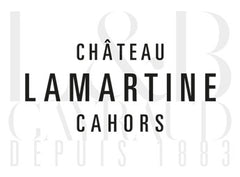 The Château Lamartine stands at the extremely west side of the Cahors Appellation, on the oldest of Lot Valley’s terraces. The terroir of the 37 hectares faces South on clay and limestone soils which guarantees a perfect maturity to the Malbec.
The Château Lamartine stands at the extremely west side of the Cahors Appellation, on the oldest of Lot Valley’s terraces. The terroir of the 37 hectares faces South on clay and limestone soils which guarantees a perfect maturity to the Malbec.For four generations, the Gayraud family has given the greatest care to the vines as well as the wine-making. This is the key to get the purest expression from the terroirs.
Press Reviews
Wine Align
92 points (2018) - Michael Godel
The 2018 “Tradition” bottling represented Cahors with good distinction and from first nose this follow-up ’19 takes that excellence one step further. Not that it gives anything away for free because there is some reserve here but the wine opens with air and agitation to reveal classicism in every respect. The fruit is mature and slow developed, ever so slightly charred and surely on a low trajectory of incrementally developing complexity. Cautious now and yet so close to drinking as well it it’s ever going to be. Drink 2024-2028. Tasted March 2023.
91 points (2018) - John Szabo
Open and fragrant, maturing nicely at this stage, Lamartine's classic Cahors (90% malbec with 10% merlot), is a lovely and succulent wine, well-proportioned and fresh, with lively acids and a real limestone twang. Wood is fully in the background, an accessory to complexity, while tannins are ripe, fine and silky and length is exceptional in the price category. Classy, well made wine, authentic, and surely better than most Bordeaux for the money. Drink or hold another 4-6 years. Tasted March 2023.
- White Wine
- Chardonnay
- Organic
- Dry
- Medium Bodied
- 750ml
- 13% alc./vol
About the Winery
Domaine du Château de La Chaize
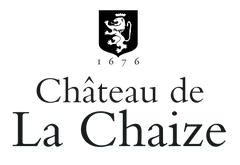
Château de La Chaize is among the oldest, most historic estates in Burgundy’s Beaujolais region. Cared for by the same family for nearly three and a half centuries, the estate has been passed on to new owners, the Gruy family, who are equally committed to managing the estate with the utmost care, while implementing an ambitious environmental plan. Among the many initiatives is the conversion of all vineyards to organic farming, the adoption of precision viticulture, reducing carbon their carbon footprint, and recycling every by-product from viti- and vinicultural activity, to achieve zero waste.
Founded in 1670 by the seneschal of Lyon François de la Chaize d’Aix, the main Château de la Chaize building and gardens were completed by Jules-Hardouin Mansart and André le Nôtre, respectively architect and gardener of the Château de Versailles. Château de la Chaize is among the oldest, most historic estates in Burgundy’s Beaujolais region. Boasting over 250 acres of vineyards, it is also one of the largest. It is today considered one of the most innovative estates in Burgundy. Among its forward- thinking practices is the adoption of eco-friendly farming techniques, commonly referred to as Agriculture Raisonnée. Chemical treatments have been reduced to a strict minimum, for example, and the growing of grass between rows has been re-introduced to enrich the soil and reduce erosion.
Press Reviews
Wine Enthusiast
90 points
This Beaujolais estate also has vines in Pouilly-Fuissé to the north. The wine has good minerality as well as ripe apple and spice. Lightly wood aged, it is a rich, structured and fruity. Drink the wine from late 2020. - Roger Voss
- Red Wine
- Pinot Noir
- Organic
- Dry
- 750ml
About the Winery
Domaine de la Garenne
Rooted in the hills of Verdigny for generations, the Godon-Reverdy family has always worked this land — first in service to the Lords of Verdigny, then the cathedral of Bourges, and finally for themselves. The slopes, trees, and fields have shaped the winery's identity, walked by the parents, grandparents, and great-grandparents before them. It was after World War II that their great-grandfather, Amédée Reverdy, became a winemaker — not by plan, but by providence and a fateful draw of the short straw. Since then, each generation has built on that legacy.
Today, Domaine de la Garenne cultivates 12.5 hectares across 37 carefully managed plots in the Sancerre AOC, a renowned Centre-Loire appellation recognized since 1936 for whites and 1959 for reds and rosés. They grow Sauvignon Blanc and Pinot Noir, producing dry white, red, and rosé wines shaped by the region's oceanic climate and diverse soils. Their vineyards span three key soil types: Caillottes (chalky and vibrant), Clay-siliceous (flinty and mineral), and Terres Blanches (rich clay-limestone offering fruit and length). Embracing organic and biodynamic practices, they are committed to working in harmony with nature, letting each terroir express itself fully in the wines. In a region of 366 passionate winegrowers and 2,999 hectares under vine, the estate remains a proud family story — one of heritage, resilience, and a profound love of the land.
- White Wine
- Chardonnay
- Sustainable, Vegan-Friendly
- Dry
- Medium Bodied
- 750ml
About the Winery
Domaine Baud Père et Fils

The history of Domaine Baud dates back to 1742, and it wasn't until 1950 when René Baud, the 7th generation, rebuilt the vineyard which had suffered from the phylloxera crisis and two World Wars.
Starting with only 4 hectares, the vineyard progressively expanded to 20 hectares with the help of successive generations. Now, managed by siblings Clémentine and Bastien, the 9th generation, the estate continues to flourish and grow, with a strong commitment to sustainable viticulture and preserving the traditions and style that makes the wines of the Jura so unique and incredible.
The estate achieved the Terra Vitis certification in 2014 for its eco-friendly work and environmental preservation.
- Sparkling Wine
- Pinot Noir, Poulsard
- Sustainable, Vegan-Friendly
- Dry
- Light Bodied
- 750ml
About the Winery
Domaine Baud Père et Fils

The history of Domaine Baud dates back to 1742, and it wasn't until 1950 when René Baud, the 7th generation, rebuilt the vineyard which had suffered from the phylloxera crisis and two World Wars.
Starting with only 4 hectares, the vineyard progressively expanded to 20 hectares with the help of successive generations. Now, managed by siblings Clémentine and Bastien, the 9th generation, the estate continues to flourish and grow, with a strong commitment to sustainable viticulture and preserving the traditions and style that makes the wines of the Jura so unique and incredible.
The estate achieved the Terra Vitis certification in 2014 for its eco-friendly work and environmental preservation.
- White Wine
- Chardonnay
- Sustainable
- Dry
- Medium Bodied
- 750ml
- 12.5% alc./vol
About the Winery
Groupe Bellene
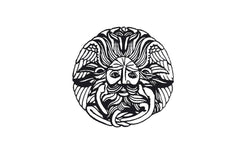
Led by Nicolas Potel in Beaune, Groupe Bellene is composed of the négociant arm Maison Roche de Bellene, the winery arm Domaine de Bellene, and a special back-vintage series under the Collection Bellenum label.
- Maison Roche de Bellene offers a complete range of wines, with an emphasis on individual terroirs from old vines of more than 40 years. All of the growers that Nicolas works with are either organic certified or sustainably farmed.
- Domaine de Bellene represents the wines that are produced and bottled from Nicolas Potel's private vineyard holdings.
- Collection Bellenum is a back vintage series that Nicolas Potel sourced from his friends in the region, offering a magnificent selection of bottled history. The wines have moved only twice in their lives, from the original cellar to Potel's and now to yours!
Nicolas Potel grew up at Volnay's Domaine Pousse d'Or, where his father worked. He trained abroad and returned home in 1996 to build a négociant business and started Maison Nicolas Potel, where he sourced grapes from good parcels, often working with the growers to improve the quality. By 2002, he was making 120 wines from 50 different appellations, and the rest is history!
- Red Wine
- Cabernet Sauvignon, Merlot
- Vegan-Friendly
- Dry
- Medium Bodied
- 750ml
- 12.50% alc./vol
About the Winery
Château Haut-Grelot
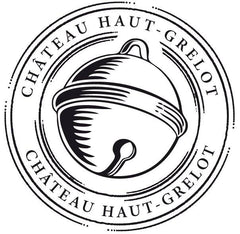
Château Haut Grelot is located in Saint Ciers Sur Gironde, approximately 50 kms north of Bordeaux, on the right bank of the Gironde Estuary. It was established by the Bonneau family in 1922 and now run but the 4th Generation. Today Château Haut-Grelot comprises 58 hectares of vineyards and is run by Céline and Julien, who was recently awarded the title 'Best Young Talent' in Bordeaux.
The vineyards are made up of sandy-gravel on the hillsides bordering the Gironde Estuary and sand-clay-silt on the hillsides further inland. Blaye Côtes de Bordeaux benefits from an ideal microclimate where there is a high level of sunshine and enough rain to guarantee the perfect environment for grape production. As a result the reds are fruity and concentrated and the whites are fresh, vibrant and delicate.
- Red Wine, White Wine
- Chardonnay, Primitivo
- Sustainable
- Dry
- 750ml
- Red Wine
- Cabernet Sauvignon, Merlot, Petit Verdot
- Sustainable
- Dry
- Full Bodied
- 750ml
- 13.5% alc./vol
About the Winery
Château Laronde Desormes
Winemaker Claude Gaudin has fashioned some exceptional wines from petits châteaux located along the Garonne River, bordering the Haut-Médoc appellation. His philosophy is simple: the wine is made in the vineyard. Dense plantation naturally reduces the yield per vine, resulting in a more concentrated wine. Traditional vinification and just the right touch of new oak give structure and added dimensions of flavor and complexity.
- Red Wine
- Pinot Noir
- Sustainable
- Dry
- Residual Sugar: 2.00 g/l
- Medium Bodied
- 750ml
- 13.00% alc./vol
About the Winery
Groupe Bellene

Led by Nicolas Potel in Beaune, Groupe Bellene is composed of the négociant arm Maison Roche de Bellene, the winery arm Domaine de Bellene, and a special back-vintage series under the Collection Bellenum label.
- Maison Roche de Bellene offers a complete range of wines, with an emphasis on individual terroirs from old vines of more than 40 years. All of the growers that Nicolas works with are either organic certified or sustainably farmed.
- Domaine de Bellene represents the wines that are produced and bottled from Nicolas Potel's private vineyard holdings.
- Collection Bellenum is a back vintage series that Nicolas Potel sourced from his friends in the region, offering a magnificent selection of bottled history. The wines have moved only twice in their lives, from the original cellar to Potel's and now to yours!
Nicolas Potel grew up at Volnay's Domaine Pousse d'Or, where his father worked. He trained abroad and returned home in 1996 to build a négociant business and started Maison Nicolas Potel, where he sourced grapes from good parcels, often working with the growers to improve the quality. By 2002, he was making 120 wines from 50 different appellations, and the rest is history!
Press Reviews
WineAlign
93 Points - Michael Godel
Les Quartiers De Nuits is yet another minuscule plot of a vineyard identified and chosen by Nicolas Potel, not quite one-third of a hectare, planted 96 years before this 2023 harvest. An early one for the most part, before the cold winds move in and ahead of Grand Cru neighbours like that of Echezeaux and Clos de Vougeot. There is a bit of mean intensity and streak in this singular, lieu-dit cru of a Bourgogne. The tannins are fierce, they lash upon the palate with severity and therefore the necessity to give time will become the requiem to success. Les Quartiers De Nuits is no shrinking violet and in fact the mix of botanical verdancy and bitters make up a formula which could never be solved in the first few years. The stuffing can’t be denied and the objective is perspicuous. Stay clear for a while. Drink 2028-2035.
- White Wine
- Chardonnay
- Sustainable, Vegan-Friendly
- Dry
- Residual Sugar: 2.00 g/l
- Light Bodied
- 750
- 13.00% alc./vol
About the Winery
Domaine Louis Moreau

Winemaker Louis Moreau is the master of the Chablis terroir, where he bottles 100% Chardonnay wines from all four levels of appellation: Petit Chablis, Chablis, Chablis Premier Crus and Chablis Grands Cru.
The Domaine owns parcels in five of the seven Grands Cru climats, and works with many plots throughout the region in a sustainable manner. The most prestigious of its wines is the monopole Chablis Grand Cru 'Clos des Hospices' dans Les Clos AOC 2016, acquired by the Moreau family in 1904.
Louis Moreau, who has been leading the domaine since 1994, produces wines with a unique style. Louis Moreau studied oenology-viticulture at Fresno State University and worked at different Californian wineries before he took over the Domaine's operations in 1994, representing the family's sixth generation of vignerons.
Press Reviews
Wine Spectator
90 Points - Bruce Sanderson, Senior Editor NY
A ripe version, boasting aromas and flavours of white flowers, peach and yellow plum, with a briny hint of seashore. Inviting and charming, with a lingering finish. Drink now.
- Red Wine, Rosé Wine, White Wine
- Lambrusco di Sorbara, Olaszrizling, Pinot Gris, Pinot Nero, Pinot Noir, Riesling, Sauvignon Blanc, Tempranillo, Trousseau
- Sustainable
- Dry
- 750ml
About the Winery
Bideona
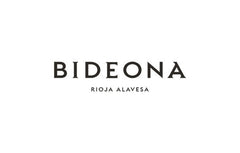
Bideona owns or manages over 300 parcels of extraordinary vines in villages throughout the Rioja Alavesa, the coolest, smallest and most Atlantic sub-zone of Spain’s most famous wine region.
The vineyards of the Rioja Alavesa are defined by parcels of old bush vines planted on terraces or hillside slopes with a high percentage of limestone. Located in the foothills of the Sierra Cantabria, Bideona’s vines have an average age of 50 years and many were planted in the 1920s, 30s and 40s, before high-yielding clones became available.
Bideona puts the focus firmly on terroir by making each wine in its Vino de Pueblo range as a field blend of Tempranillo and other native varieties from plots in an individual village. Each is named with an acronym – L3Z4 for Leza, L4GD4 for Laguardia, S4MG0 for Samaniego and V1BN4 for Villabuena – owing to DOCa Rioja regulations that only allow village names to be marked if both the winery and the vineyard are in the same location.
“Bideona’s reason for existence is to make wines that show the personality of the Rioja Alavesa and its historic wine villages” states company co-founder and director, Andreas Kubach MW. “We have access to a wealth of diverse plant material in our parcels of old vines, which we believe contributes to the complexity of the wines as well as the differences between villages.”
Domaine Baud Père et Fils

The history of Domaine Baud dates back to 1742, and it wasn't until 1950 when René Baud, the 7th generation, rebuilt the vineyard which had suffered from the phylloxera crisis and two World Wars.
Starting with only 4 hectares, the vineyard progressively expanded to 20 hectares with the help of successive generations. Now, managed by siblings Clémentine and Bastien, the 9th generation, the estate continues to flourish and grow, with a strong commitment to sustainable viticulture and preserving the traditions and style that makes the wines of the Jura so unique and incredible.
The estate achieved the Terra Vitis certification in 2014 for its eco-friendly work and environmental preservation.
Gilvesy Pincészet
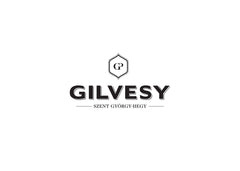
Hungarian expat Róbert Gilvesy moved back to his homeland from Canada, and began building the Gilvesy winemaking empire on the former Esterházy estate on Szent György Hill. Thanks to years of hard work, the Hegymagas-based facility now includes a modern building complex and about 13 hectares of vineyards, in addition to being the home of the family. The area is shaped by 6 million years old volcanoes, where indigenous and international varieties grow organically.
Robert’s absolute admiration for nature and the terroir translates into an immense respect for the environment. By farming using organic practices, the soils and the vines stay healthy. In the winery, by letting nature take its course without controlling the processes, and using local resources, such as Hungarian oak barrels, Gilvesy promotes and protects the Balaton region.
- Sparkling Wine, White Wine
- Sémillon
- Sustainable, Vegan-Friendly
- Dry
- Light Bodied
- 750ml
- 12.50% alc./vol
About the Winery
Château Haut-Grelot

Château Haut Grelot is located in Saint Ciers Sur Gironde, approximately 50 kms north of Bordeaux, on the right bank of the Gironde Estuary. It was established by the Bonneau family in 1922 and now run but the 4th Generation. Today Château Haut-Grelot comprises 58 hectares of vineyards and is run by Céline and Julien, who was recently awarded the title 'Best Young Talent' in Bordeaux.
The vineyards are made up of sandy-gravel on the hillsides bordering the Gironde Estuary and sand-clay-silt on the hillsides further inland. Blaye Côtes de Bordeaux benefits from an ideal microclimate where there is a high level of sunshine and enough rain to guarantee the perfect environment for grape production. As a result the reds are fruity and concentrated and the whites are fresh, vibrant and delicate.
- Rosé Wine, White Wine
- Chardonnay, Glera, Macabeo, Pinot Noir, Poulsard, Xarel-lo
- Sustainable
- Dry
- 750ml
About the Winery
Conti Riccati
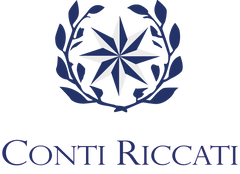 Conti Riccati is located in the rolling hills outside of Castelfranco, Veneto; in the province of Treviso. Their vineyards extend along 20 hectares inside a bigger property that has belonged to the Riccati family since the 14th century.
Conti Riccati is located in the rolling hills outside of Castelfranco, Veneto; in the province of Treviso. Their vineyards extend along 20 hectares inside a bigger property that has belonged to the Riccati family since the 14th century.Valperto Azzoni, his wife along and their four children are the direct descendants of the Riccati family and have the same enthusiasm and respect for the land, that their ancestors had in the past.
Conti Riccati grows mostly Glera, Pinot Gris and Pinot Noir though they are most known for their Prosecco.
The winemaker, Salvatore Lovo and the agronomist, Giovanni Pascarella take great pride in making the wines and tending the vineyards for the family. They practice sustainable viticulture and are currently in organic conversion.
Domaine Baud Père et Fils

The history of Domaine Baud dates back to 1742, and it wasn't until 1950 when René Baud, the 7th generation, rebuilt the vineyard which had suffered from the phylloxera crisis and two World Wars.
Starting with only 4 hectares, the vineyard progressively expanded to 20 hectares with the help of successive generations. Now, managed by siblings Clémentine and Bastien, the 9th generation, the estate continues to flourish and grow, with a strong commitment to sustainable viticulture and preserving the traditions and style that makes the wines of the Jura so unique and incredible.
The estate achieved the Terra Vitis certification in 2014 for its eco-friendly work and environmental preservation.
Mas Codina
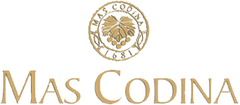 The Mas Codina estate is located in the heart of the Alt Penedès region, comprising of low-lying plains and hills between 250 and 300 metres high.
The Mas Codina estate is located in the heart of the Alt Penedès region, comprising of low-lying plains and hills between 250 and 300 metres high.Until recently, the farm has always grown, and made a livelihood from, cereals, grapes, peaches and vegetables, as well as farm animals. Now, apart from century-old olive trees, all the land is devoted to vineyards.
Mas Codina has been in the same family for generations. They have adopted organic farming practices promoting natural processes and seeking a balanced ecosystem. All because of their love for land and tradition. There are currently 40 hectares of vineyards that are being organically farmed.
- Red Wine
- Grenache
- Organic, Sustainable
- Dry
- 750ml
- 12.5% alc./vol
About the Winery
Domaine Peter Sichel
Tucked away in a hidden valley in a remote corner of the Languedoc-Roussillon lies a truly special place: the village of Cucugnan. Historically, there was much wine produced here, given its isolated location, but gradually the local people moved away to the towns. There are now just 130 people living in the village. As the vineyards were left mostly abandoned, the local flora and fauna were permitted to thrive. Cucugnan became a unique area, full of biodiversity, which shines through in the rare plants and flowers that grow there today.
Peter Sichel (of the Bordeaux négociant family) first discovered this valley on a road trip with a friend in the 1960s. He was so spellbound by the place that he bought a house there and, in 1988, planted a vineyard. The project grew, albeit slowly, but the arrival of Peter’s thoughtful and environmentally inspired grandson, Alexander Sichel, has turned the Domaine Peter Sichel project completely around.
Since 2019, Alexander has converted the estate to organics and biodynamics, achieving organic certification in 2022. Furthermore, he is committed to supporting polyculture in and around the vineyards, even enlisting the help of a PhD programme from a Dutch university to identify the incredible array of plant life in the vineyard.
Alexander’s grandfather planted the vines between 30-40 years old. Parcels of Grenache, Syrah, Carignan, and Roussanne lie mostly on the best slopes of the valley. Starting from 350-500 metres’ altitude, these slopes have very little topsoil; the roots go almost straight into the bedrock. The viticultural team here has done much work to focus on the unique characteristics of each parcel to express the terroir of this stunning valley in the most authentic way.
- White Wine
- Grenache Blanc, Picpoul, Viognier
- Organic, Sustainable
- Dry
- Residual Sugar: 0 g/l
- Full Bodied
- 750ml
- 11% alc./vol
- White Wine
- Sylvaner
- Biodynamic, Organic, Vegan-Friendly
- Dry
- Light Bodied
- 750ml
- 12.5% alc./vol
About the Winery
Domaine Muré
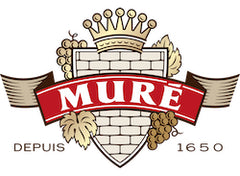
The Muré family has been winegrowers in the region of Rouffach since 1650. In 1935, Alfred Muré, René’s grandfather, bought 32 acres of family-monopole vineyard name Clos St. Landelin, an area that has been described as the best of Alsace Grand Cru since the 7th Century.
Today, René Muré, the 11th generation of the family, along with his children, Véronique and Thomas, are responsible for running their exceptional Grand Cru vineyard and neighbouring terroirs using biodynamic methods. Until this day, they persist in hand-picking every single grape, and focus on crafting wines that preserve the family’s credo. The resulting wines are some of Alsace's finest – powerful, elegant, and age-worthy.
- Red Wine
- Trousseau
- Sustainable, Vegan-Friendly
- Dry
- Medium Bodied
- 750ml
About the Winery
Domaine Baud Père et Fils

The history of Domaine Baud dates back to 1742, and it wasn't until 1950 when René Baud, the 7th generation, rebuilt the vineyard which had suffered from the phylloxera crisis and two World Wars.
Starting with only 4 hectares, the vineyard progressively expanded to 20 hectares with the help of successive generations. Now, managed by siblings Clémentine and Bastien, the 9th generation, the estate continues to flourish and grow, with a strong commitment to sustainable viticulture and preserving the traditions and style that makes the wines of the Jura so unique and incredible.
The estate achieved the Terra Vitis certification in 2014 for its eco-friendly work and environmental preservation.
- Red Wine
- Pinot Noir
- Sustainable
- Dry
- Residual Sugar: 2.00 g/l
- Medium Bodied
- 750ml
- 13.50% alc./vol
About the Winery
Groupe Bellene

Led by Nicolas Potel in Beaune, Groupe Bellene is composed of the négociant arm Maison Roche de Bellene, the winery arm Domaine de Bellene, and a special back-vintage series under the Collection Bellenum label.
- Maison Roche de Bellene offers a complete range of wines, with an emphasis on individual terroirs from old vines of more than 40 years. All of the growers that Nicolas works with are either organic certified or sustainably farmed.
- Domaine de Bellene represents the wines that are produced and bottled from Nicolas Potel's private vineyard holdings.
- Collection Bellenum is a back vintage series that Nicolas Potel sourced from his friends in the region, offering a magnificent selection of bottled history. The wines have moved only twice in their lives, from the original cellar to Potel's and now to yours!
Nicolas Potel grew up at Volnay's Domaine Pousse d'Or, where his father worked. He trained abroad and returned home in 1996 to build a négociant business and started Maison Nicolas Potel, where he sourced grapes from good parcels, often working with the growers to improve the quality. By 2002, he was making 120 wines from 50 different appellations, and the rest is history!
Press Reviews
WineAlign
97 Points - John Szabo, MS
Dark and brooding on the nose, reserved and still in a reductive state, this is very evidently a long way off from prime enjoyment. The palate, however, points the way forward to future harmony and integration, offering a superior dimension of flavours and saliva-inducing succulence, of energy and vibrancy. Reverberations of the earth rumble across the palate, and the body; there's clearly something special underfoot here, a tsunami of terroir, of place. The finish lingers on and on - this is special. Taste this to understand what terroir is all about, but not before 2030 for maximum revelation.
- Red Wine
- Pinot Noir
- Sustainable
- Dry
- Residual Sugar: 2.00 g/l
- Medium Bodied
- 750ml
- 13.00% alc./vol
About the Winery
Groupe Bellene

Led by Nicolas Potel in Beaune, Groupe Bellene is composed of the négociant arm Maison Roche de Bellene, the winery arm Domaine de Bellene, and a special back-vintage series under the Collection Bellenum label.
- Maison Roche de Bellene offers a complete range of wines, with an emphasis on individual terroirs from old vines of more than 40 years. All of the growers that Nicolas works with are either organic certified or sustainably farmed.
- Domaine de Bellene represents the wines that are produced and bottled from Nicolas Potel's private vineyard holdings.
- Collection Bellenum is a back vintage series that Nicolas Potel sourced from his friends in the region, offering a magnificent selection of bottled history. The wines have moved only twice in their lives, from the original cellar to Potel's and now to yours!
Nicolas Potel grew up at Volnay's Domaine Pousse d'Or, where his father worked. He trained abroad and returned home in 1996 to build a négociant business and started Maison Nicolas Potel, where he sourced grapes from good parcels, often working with the growers to improve the quality. By 2002, he was making 120 wines from 50 different appellations, and the rest is history!
Press Reviews
WineAlign
96 Points - Michael Godel
Aux Chaignots is a newer and pint-sized 0.14 hectare plot of Premier Cru Nuits-Saint-Georges in the northerly Côte d’Or upslope and within a limestone throw over to those in the village of Vosne-Romanée. Makes for the most two-toned, dual-textured Bourgogne of the lot, at one crisp and crunchy and then chewy, from exterior to interior. Reminds somewhat of the formidable 2020 and its striking tannins, both capable of unleashing and crashing their power over our palates with impunity and trenchant intention. Of course this 2023 remains in an immovable state, grippy and suggestive of a hands off approach for a minimum five years post vintage. More would be the suggestion because the fortification is a secure one and there is really no sense trying to break down barriers that do not want to be broken down. Drink 2028-2037.
- Red Wine
- Gamay
- Biodynamic, Sustainable, Vegan-Friendly, Volcanic
- Dry
- Medium Bodied
- 750ml
- 13% alc./vol
About the Winery
Stéphane Aviron
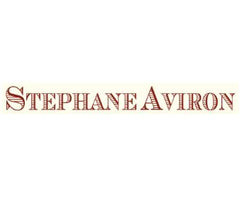
Stéphane Aviron can be considered a pioneer in his approach to winemaking in Beaujolais, however he would just tell you that he’s simply returning to the traditional practices that have always made fantastic Gamay wines. Sustainable viticulture, extremely old vines and classic Burgundian techniques. He focuses on the Beaujolais village crus, all but forgotten gems of vineyards when the nouveau craze took over, which are the best sites for unique, expressive and terroir driven wines. All of the fruit is sourced from old vines (40+ years), so seeing Vieilles Vignes on the label is a rite of passage, not a privilege. Authenticity and a distinctly Beaujolais style of winemaking is what sets Stéphane apart from the rest.
- Red Wine
- Gamay
- Biodynamic, Sustainable, Vegan-Friendly, Volcanic
- Dry
- Medium Bodied
- 750ml
- 13% alc./vol
About the Winery
Stéphane Aviron

Stéphane Aviron can be considered a pioneer in his approach to winemaking in Beaujolais, however he would just tell you that he’s simply returning to the traditional practices that have always made fantastic Gamay wines. Sustainable viticulture, extremely old vines and classic Burgundian techniques. He focuses on the Beaujolais village crus, all but forgotten gems of vineyards when the nouveau craze took over, which are the best sites for unique, expressive and terroir driven wines. All of the fruit is sourced from old vines (40+ years), so seeing Vieilles Vignes on the label is a rite of passage, not a privilege. Authenticity and a distinctly Beaujolais style of winemaking is what sets Stéphane apart from the rest.
Press Reviews
Wine Align
92 points (2019) - Sara d'Amato
A very delicate Fleury with elegant aromatic character such as dried leaf, white pepper, raspberry and floral notes. The palate features natural fruit spice and somewhat angular tannins. Quite fresh with wet stone and cherries on the finish of considerable length.
91 points (2019) - David Lawrason
Fleurie to my mind is always the most silky and refined of the Beaujolais cru, and this captures that essence. The nose is not overtly generous but it displays fine cherry jam, gentle florality and spice aromas. Love the texture here with some warmth, very fine tannin and excellent length. Just a touch earthy on the finish. Tasted March 2021.
92 points (2019) - Michael Godel
The fifth of six old vines wines in the Aviron Cru Beaujolais series, here from a toponym that refers to one (or two) hamlets in Aviron, Madrière or Madrière(s). Not sure which cru might be the king (likely Moulin) but Fleurie is oft referred to as "The Queen of Beaujolais.” Must be because it takes complete control and calls the shots, here in Aviron’s 2019 as a matriarch of strength, nobility and class. Firm yet elastic, higher in acids to lift, aerate and stretch the fruit towards a rising tannic sensation. The real deal and the one to slowly unwind well into the end of this decade. Drink 2022-2028. Tasted March 2021.
92 points (2019) - John Szabo, MS
A cru Beaujolais of considerable substance and flesh, also very firm and stony, with genuine old vine richness and above all balance, very floral. I like the comfort and ease of the concentration and depth, not forced, overripe nor over-extracted, just proof of honest old vine richness. A soul at rest. Tasted March 2021.
- Red Wine
- Grenache, Syrah
- Sustainable
- Dry
- Residual Sugar: 5.00 g/l
- 750ml
- 14.00% alc./vol
About the Winery
Domaine Autrand

Christine Aubert and her son Aurélien, wine-makers in Vinsobres, at the heart of the Drôme Provençale, welcome you to their family estate. As a 80Ha estate, the Autrand Wine Cellar produces AOC Vinsobres (Côtes du Rhône vintage since 2006), Côtes du Rhône Villages AOC and Côtes du Rhône AOC in each color. Vinsobres, another little known Southern Rhône commune was awarded 'Cru' status in 2006. It’s relative anonymity outside France ensures exceptional value.
Press Reviews
Decanter World Wine Awards
90 Points
80% Grenache, 20% Syrah. Herbal, liquorice and ripe berry nose. Full-bodied style with some enjoyable dense tannins and good acidity.
- White Wine
- Sylvaner
- Organic, Sustainable
- Dry
- Residual Sugar: 2.00 g/l
- Medium Bodied
- 750ml
- 13.00% alc./vol


























